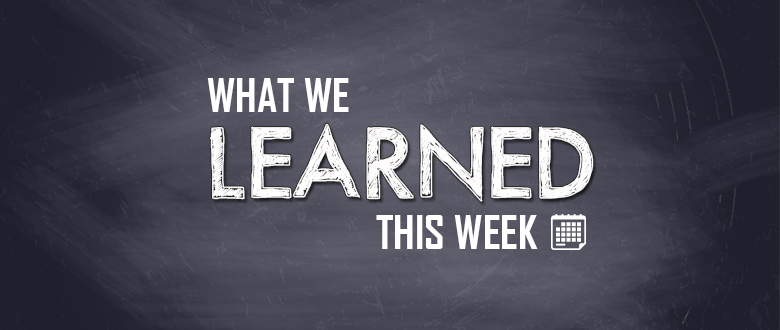
For quite some time, I’ve noticed something off to me scanning through hot takes, sifting through click bait, and participating in many film discussion threads across social media, including right here in the Feelin’ Film circle. It’s a lack of clear contrast between a pair of opposite hot button terms which manifest themselves as figurative hills people seem to go to die on. No, it’s not “masterpiece” this time.
I’m talking about “subjective” and “objective” when it comes to film criticism or evaluation. Too often lately, I hear or read people, both professional and amateur in background mind you, put the -ly ending on either of those two terms to create what they think is an adverb of defense to strengthen some silly descriptive point of “good” or “bad” they are trying to make about a movie. When I see it happen, I first think about that great Inigo Montoya quote-turned-meme from The Princess Bride of “You keep using that word, I do not think it means what you think it means.” I second think about, because I can’t help myself as a schoolteacher that grades things, circling where the communicated flaws of logic or sense are with my invisible internet red pen.
The duel between objective and subjective is a gray area of thinking that doesn’t have a black-and-white answer of right or wrong. It is more of a sliding scale between prudent and careless presentation of facts and opinions. I think this young podcaster and YouTuber named Houston Coley of Blockbusted really talked the surface of this debate out well. Take a look:
I think the kid is spot on about a few things. I agree with him that factual elements, particularly technical qualities, can be cited in film criticism, quality can be factual in nature, and, most of all, that a critic should define their terms. Let’s do that. I love pulling from the dictionary to highlight a term in my film reviews, so let’s go there first as if I’m Inigo Montoya’s next step of offering correction.
SUBJECTIVE— Dependent on or taking place in a person’s mind rather than the external world, based on a given person’s experience, understanding, and feelings; personal or individual (source)
OBJECTIVE— Existing independent of or external to the mind; actual or real, based on observable phenomena; empirical, uninfluenced by emotions or personal prejudices (source)
I lay all of that out for this soapbox because, maybe more definitively than Houston’s talk, I am one critic that wholeheartedly thinks there is room for both terms in film criticism. With discretion, one can judge separately with one’s head as well as with one’s heart. It is a discipline I seek and I wish more people attempted to better clarify their thoughts.
Those of you frequent Feelin’ Film Discussion Group participants know I’m the “favorite” versus “best” guy. That’s subjective (favorite) versus objective (best) at its simplest and I strive to delineate that often wherever I represent my work. For example, I adore Anaconda knowing full well it’s a ridiculously cheesy movie. At the same time, I can respect the hell out of Schindler’s List without ever wanting to watch it again as if it’s some cherished holiday tale. One is a favorite. One is among the respected best of the art form. Rare movies for me are ever both and when that happens it’s beautiful, welcome, and earned.
Once I ever share this mentality or stir this debate in a discussion, I get the same pushbacks. Even the mere introduction of the idea of “objective” criticism and its possibilities bring out the stalwart “all art (everything) is subjective” ranters. They are often the kind of people that don’t listen to, care, or respect any opinion but their own. They lack an open mind of compromise or a listening ear or empathy. Their frustration point, where they show the inability to explain their stance or the existence of opposing stances, normally rears its ugly head when a combative line like “don’t tell me what I can and cannot like” comes out. If you hear or read that, they’re done trying, if they ever really attempted in the first place.
If you live and die on that subjective hill, so be it. “To each their own,” as us pragmatic people say against your pushy dos and don’ts. If you have made it this far in the editorial and are open and willing to listen, all I’m saying is step back and try some objectivity on for size, or at least the candor of it with your communication in discussions and debates. Be balanced. Be even-handed. Be fair. Separate personal from impersonal. Step back for a second to see the other sides of things. Find common understanding and that goes back to defining terms.
What does the objective end look like when talking about a film? Well, the easiest way to say it is: Look for the purpose. Circle back to the cited definition of “objective.” One of its biggest distinctions is the clause about “based on observable phenomena.” Do some homework to learn the qualities of a great film. If you’re a beginner there, start with this easy piece from Penny Flores of MS Films that highlights five basic elements. Another nice and approachable take comes from the Now You See It channel on YouTube:
Here’s a quick sidebar of “buyer beware.” Even that term “great” is a loaded landmine in its own right, a word that is thrown around too flippantly and too easily in weak hyperbole. Everything or too many things just have to be “great” for some reason. Have more nuance. Show more descriptive degrees. Get a thesaurus and use a more interesting and less ambiguous word. I digress yet still plead for better while we’re here.
My teacher brain translates “based on observable phenomena” as having specific criteria in mind. To me, that’s the quantifiable separator between “subjective” and “objective.” That’s also the thing most people who carelessly snipe the “objectively great” or “objectively bad” labels can’t present to backup their supposed take. Those that can back up their words are the ones that walk the walk after talking the talk. I don’t see much of that and it’s a shame folks aren’t willing to put the minor amount of work in.
Criteria sounds like a grading scale to me, and a good teacher never uses the same grading scale for all assignments. They specialize those rubrics for each assignment. I know I would grade a task in P.E. different than an essay in Language Arts. We film lovers and armchair critics can bring those tailored approaches to different genres and disciplines in the very same way. Start with the technical side. Use some of those elements Flores article or the qualifiers from the Now You See It video as the list of what to grade. Lay that out and cite those measures when you critique a film. That becomes your intelligent and discerning spine which allows for purpose to be examined and craft to be respected.
After that, balance that with the subjective. Shout from your stump all the feels, emotions, likes, and dislikes you encountered. Those are the personal tingles and will always be the lasting good stuff. No one can take those away from you and they have their sprawling place. But I’ll say it again. There’s room for both. Applying a little objectivity doesn’t take away from subjectivity, not in the least. If anything, their intelligent and mindful combination make for a more well-rounded overall opinion complete with a greater appreciation of multiple perspectives and, in the end, the film itself. Try it sometime. Welcome a little head into your heart.

 DON SHANAHAN is a Chicago-based and Rotten Tomatoes-approved film critic writing on his website Every Movie Has a Lesson and also on Medium.com for the MovieTime Guru publication. As an educator by day, Don writes his movie reviews with life lessons in mind, from the serious to the farcical. He is a proud director and one of the founders of the Chicago Independent Film Critics Circle and a new member of the nationally-recognized Online Film Critics Society. As a contributor here on Feelin’ Film now for over a year, he’s going to expand those lessons to current movie news and trends while chipping in with guest spots and co-hosting duties, including the special “Connecting with Classics” podcast program. Find “Every Movie Has a Lesson” on Facebook, Twitter, and Medium to follow his work.
DON SHANAHAN is a Chicago-based and Rotten Tomatoes-approved film critic writing on his website Every Movie Has a Lesson and also on Medium.com for the MovieTime Guru publication. As an educator by day, Don writes his movie reviews with life lessons in mind, from the serious to the farcical. He is a proud director and one of the founders of the Chicago Independent Film Critics Circle and a new member of the nationally-recognized Online Film Critics Society. As a contributor here on Feelin’ Film now for over a year, he’s going to expand those lessons to current movie news and trends while chipping in with guest spots and co-hosting duties, including the special “Connecting with Classics” podcast program. Find “Every Movie Has a Lesson” on Facebook, Twitter, and Medium to follow his work.




